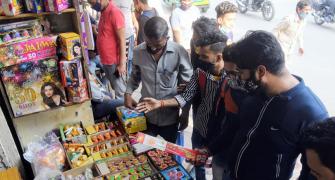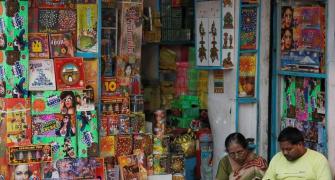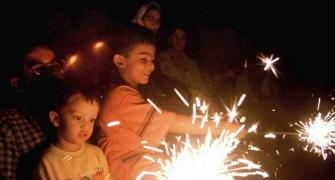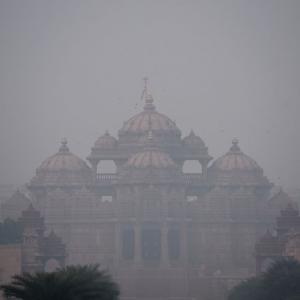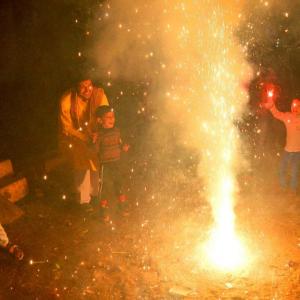The Supreme Court ban on barium may wipe out 50% revenues of the Rs 3,000 crore fireworks industry.
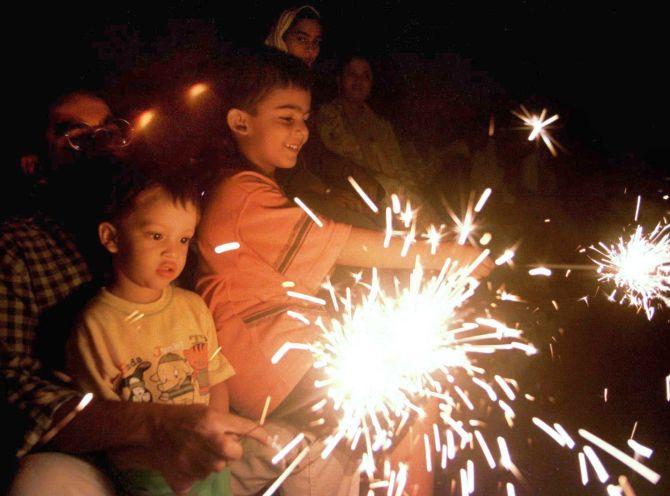
Fireworks of your childhood days -- the traditional phuljhari (sparkler), the rolling chakri (ground spinner), which shoots out colourful sparks, and anar (flowerpot), which displays flames and soundless twinkling stars -- may be a thing of the past.
Manufacturers in Tamil Nadu's Sivakasi, which makes over 90 per cent of the fireworks in India, have stopped the production of such items following a Supreme Court ban on barium.
Industry experts indicate this is expected to wipe out almost 50 per cent of the revenue of the Rs 3,000 crore/Rs 30 billion (pre-pandemic) industry, which was deeply hit by Covid and the National Green Tribunal restrictions in several cities last year.

"Our production is down by 50 per cent. We are unable to manufacture a lot of key items like sparklers, chakris, anars, twinkling stars and pencils, due to the ban on barium," says Murali Asaithambi of the Sivakasi Fireworks Manufacturers Association.
"After the loss-making pandemic years, this year is going to be crucial for the existence of the industry in Sivakasi and we are keeping our fingers crossed for legal relief," Asaithambi adds.

In addition, sales of large joint crackers have affected those of small joint crackers too.
Though the Supreme Court had banned the use of barium in 2018, last year it was reconfirmed by the court, leading to a stop in the production of key items this season.
According to government estimates, there are over 1,400 manufacturing units in Sivakasi and nearby areas.
This comes at a time when the industry has been hit also by a rise in raw material prices in the past one year.
"The cost of production has increased because prices of raw materials like potassium nitrate have increased by 95 per cent, strontium nitrate two times, and other items by around 50 per cent.
"On the other hand, as a small relief, we increased our prices by 40 per cent compared to last year," says T Kannan, general secretary, Indian Fireworks Manufacturers Association.

According to a report by CARE Ratings, the size of the industry was around Rs 3,000 crore in 2020.
Based on the numbers of the Tamil Nadu Fireworks Amorces Manufacturers Association, it came down to almost Rs 2,300 crore (Rs 23 billion) due to the pandemic.
Key items not being produced is likely to further bring it down, say local industry sources.

After the apex court reconfirmed the ban in 2021, industry stakeholders had approached the court for relief and associations expect they will be heard before the festive season started.
The associations allege though licensed manufacturers have stopped production, Sivakasi is fast becoming a hotspot for illegal manufacturing.

The NGT ban in cities like Delhi and places with higher pollution affected our sales last financial year," Asaithambi says.
"On the barium ban, our demand is to have a detailed study by reputed organisation like Indian Institutes of Technology," Asaithambi adds.
The ban came after a report by the Central Pollution Control Board said that air quality worsened during Diwali.
Feature Presentation: Ashish Narsale/Rediff.com


